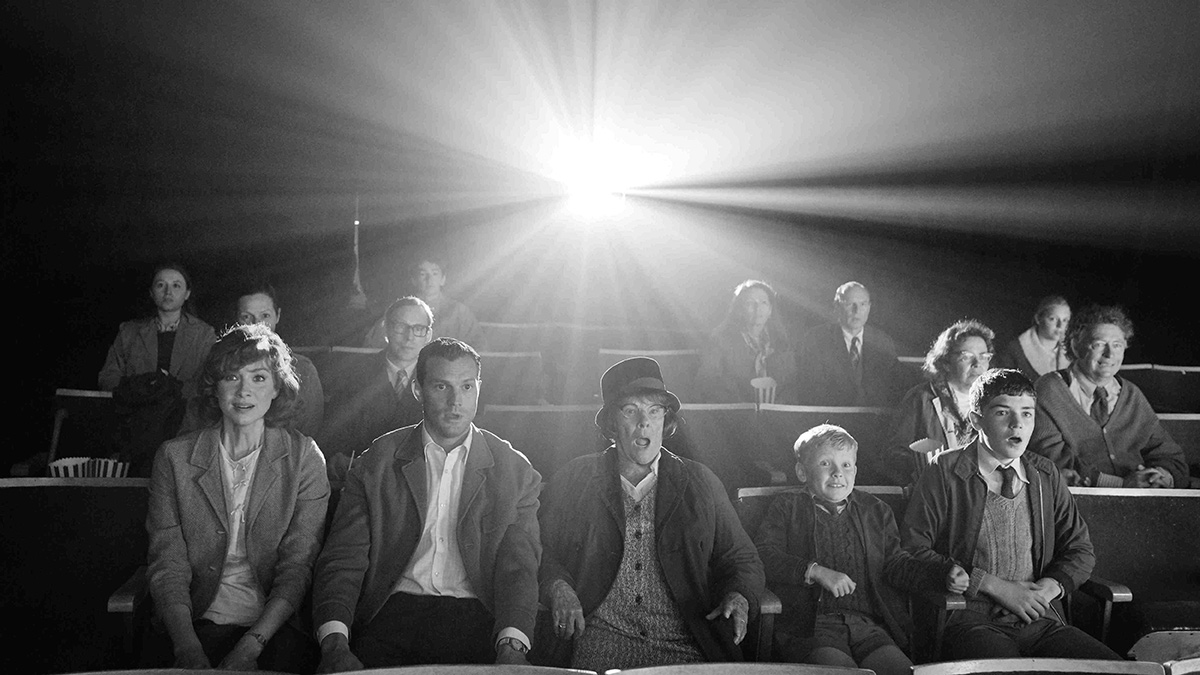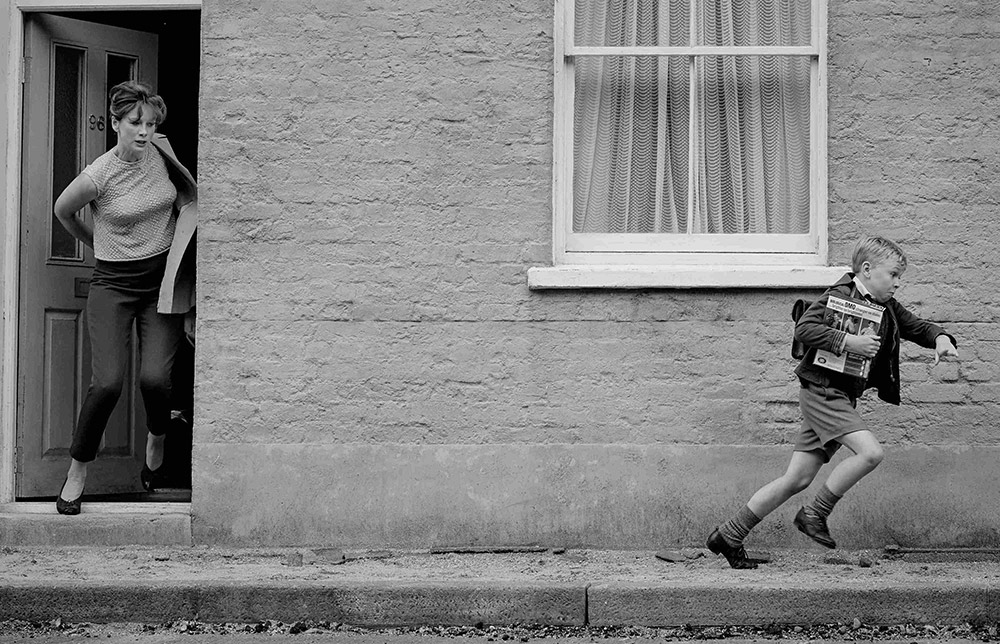
Ⓒ2021 Focus Features, LLC.
Kenneth Branagh's personal work, a fictional reconstruction of his ``Belfast'' autobiography
2022.03.24
recasting autobiography as fiction
The film is set in Belfast, Northern Ireland in 1969. At the beginning of the film, the protagonist, a boy named Buddy (Jude Hill), is playing innocently outside when a mysterious roar echoes through the streets, blowing everything around him away. His mother (Caitriona Balfe) hurriedly takes her son back home and hides him under a desk. Another roar is heard and the surroundings are destroyed. When the noise subsides and he goes outside, he finds rubble scattered all over the place. This is also the beginning of the conflict between Catholics and Protestants in Belfast. From that day on, the situation worsens and the streets are on the brink of war. Vigilantes patrol the area at night and barricades are erected on the streets. The streetscape where the children used to be is completely different.
Buddy is set to be 9 years old, and Branagh, who once lived in Belfast, had the same experience. The scene where a bomb flies into the house is very powerful, and you can feel the boy's fear. However, it is by no means a socially conscious film, and at its core is a family story. How does a boy who has woken up to the outside world through these changes in the city deal with the decisions his family makes? Everything is told from the perspective of a 9-year-old boy.

“Belfast”Ⓒ2021 Focus Features, LLC.
In the film, Pa (the father, Jamie Dornan) goes to London across the sea to work, and occasionally returns home. Ma is in charge of the household, and is raising Buddy and his brother alone. Pa is a bit timid, but handsome. The strong-willed Ma loves to dance, and is slim, and looks good in short skirts and slim pants. She can also be fiery, and when she fights with Pa, she sometimes breaks plates. Buddy also loves his grandfather (Pop, Ciarán Hinds) and grandmother (Granny, Judi Dench), and the three of them often indulge in rambling conversations. Pa suggests to his family that they leave their hometown of Belfast, where conflict has intensified, and live in another city.
The Branagh family's experiences at that time were already written about in his autobiography, " The Autobiography of Kenneth Branagh ," published in 1989 (published in Japan by Hakusuisha in 1993, translated by Tetsuo Kishi), and we can see that Branagh himself had lived a similar life to Buddy. Things depicted in the film, such as the fear he felt when a priest told him in church that "life is divided into two paths (heaven and Inferno)," his first shoplifting experience, and First Love love for a girl, all appeared in the book published more than 40 years ago. Also, like the film, his father was a "good man," his mother "loved dancing," and she "loved pop and granny panties." However, this film version adds fiction to what were merely episodes in the book, giving it a narrative quality.
The film is set in 1969, and as depicted in the film, it was the year when news of the American Apollo 11 "moon landing" spread around the world, anti-Vietnam War and civil rights movements were gaining momentum in the country, and student movements occurred all over the world. In this era of "change," conflicts over religious confrontations intensified in Ireland. By setting the film in 1969, a turning point for the world, the film's theme of "a family's new journey" is more persuasive. Also, by setting the film in a time of conflict, it is possible to feel a perspective that is relevant to the present day, when racial conflict and war are problems, and it is also good that it does not end as mere nostalgia.

